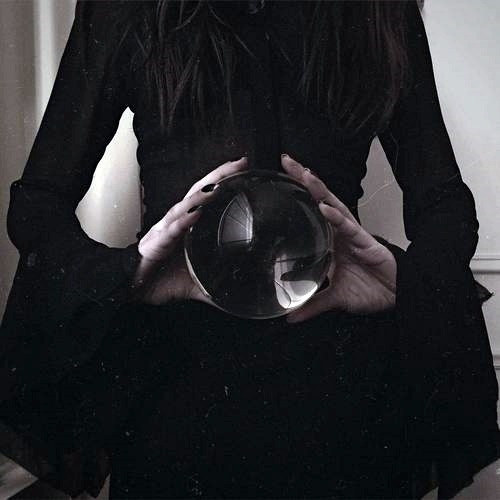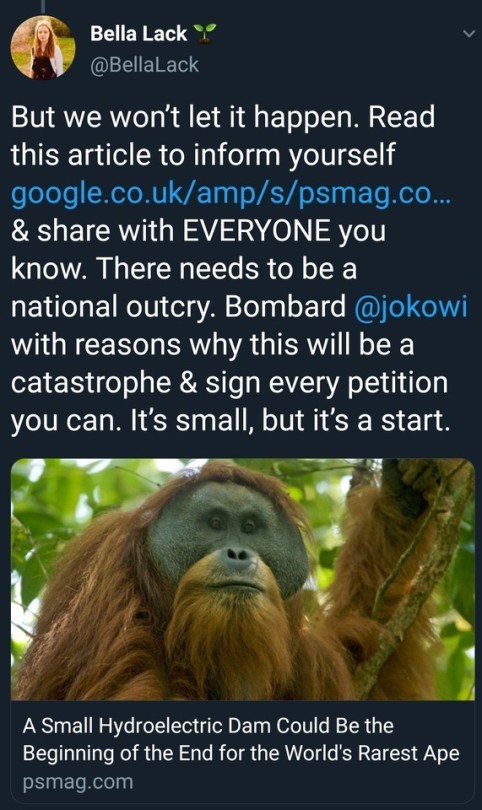.:: Defining Traditional Witchcraft ::.
.:: Defining Traditional Witchcraft ::.

What is Traditional Witchcraft?
According to Michael Howard, Trad Craft refers to “any non-Gardnerian, non-Alexandrian, non-Wiccan or pre-modern form of the Craft, especially if it has been inspired by historical forms of witchcraft and folk magic”.
Traditional Witchcraft, therefore, is not a single monolith. We can, in fact, distinguish between:
Operative Witchcraft or Folk Magic
Ritual(istic) Witchcraft
This first difference is taken from Margaret Murray; she used the first term for indicating the practice of magic, as carried out by cunning folk and folk magicians, and included the non-religious practice of spells, charms, divinations, etc. “whether used by a professed witch or by a professed Christian, whether intended for good or for evil, for killing or for curing. Such charms and spells are common to every nation and country, and are practised by the priests and people of every religion. They are part of the common heritage of the human race and are therefore of no practical value in the study of any one particular cult.” (The Witch-Cult, p. 11.)
The second term (also called “Dianic cult” by Murray) indicates, instead, “the religious beliefs and ritual of the people, known in late mediaeval times as ‘Witches’. The evidence proves that underlying the Christian religion was a cult practised by many classes of the community, chiefly, however, by the more ignorant or those in the less thickly inhabited parts of the country. It can be traced back to pre-Christian times”. Therefore we can say that Ritual Witchcraft is the cult of pre-Christian Deities or Spirits connected to the witches.
While the ideas of Murray about this cult have now been discredited, other scholars have reopened this field as a viable area of study, discovering many ecstatic witch-cults. The most known academics in this field are: Carlo Ginzburg, Éva Pócs, Emma Wilby, Claude Lecouteux, Wolfgang Behringer, Sabina Magliocco, Gábor Klaniczay, Gustav Henningsen and Bengt Ankarloo.
Relying on the work of these scholars, we can say therefore that Ritual Witchcraft was/is the religious system surrounding the Sabbath, the Procession of the Dominae Nocturnae from house to house, the spiritual flight, Elphame, the Wild Hunt, the Night Battles, etc.
As we can understand, even if the majority of the Ritual Witches were/are also Operative Witches (practitioners of Folk Magic), not all the Operative Witches were/are also Ritual Witches. The majority of Folk Magicians/Operative Witches, in fact, didn’t go to the Sabbath, didn’t astrally fly, didn’t astrally go with the Wild Hunt, from house to house with the Domina Nocturna, to Elphame/the Otherworld or to the Night Battles. Ritual Witches did.
We can say, therefore, that Operative Witchcraft is a practice, while Ritual Witchcraft is a religion.
Traditional Witches who are secular are, therefore, usually Operative and not Ritual Witches. While the distinction between Ritual and Operative Witchcraft is an established one in the Witchcraft community, I introduce a new, according to me useful, second distinction, inside Ritual Witchcraft (i.e. Witchcraft as a religion), by borrowing the terms “Revivalism” and “Reconstructionism” from Polytheism, in which it’s an already established terminology:
Hereditary Witchcraft
Revivalist Witchcraft
Reconstructionist Witchcraft
Hereditary Traditional Witchcraft brings together all the traditions that claim a lineage from the Witchcraft of the past.
Revivalist Traditional Witchcraft is inspired by folklore, trials and the figure of the witch without any presumption of hereditarity. Unlike the Reconstructionist one, it leaves ample space for personal initiative and the influence of other traditions, without slavishly following the history in every single detail.
Reconstructionist Traditional Witchcraft, finally, tries to resume, starting from the in-depth study of folklore, historical trials and documents, the exact practices and beliefs of Historical Witchcraft. For example, the pantheon of Spirits, the festivities, the structure of the Sabbath, the structure of the offerings, and so on.
An important aspect for those who practice Reconstructionism is the resumption of the names of the Gods (or it would be more correct to say, of the “Deific Familiar Spirits” or “Major Spirits”) forgotten and remained only in the trials papers and in folklore. The idea is to reopen roads, ways to these Spirits. Reconstructing therefore means paying homage to these Spirits and allowing those interested to re-establish a connection with Them.
We said before that Traditional Witchcraft is not Wicca. What’s the difference?
According to the Traditional Witchcraft author Lee Morgan:
“It could easily be said that one of the major differences between the modern revival referred to as “Traditional Witchcraft” and the other modern revival known as “Wicca”, is that Traditional Witchcraft draws on “folkloric material” and is largely “shamanic” whereas Wicca is more of a fusion of Western Occult ceremonial and natural magic traditions.”
(From: Lee Morgan’s “A Deed Without a Name: Unearthing the Legacy of Traditional Witchcraft”)
More Posts from Gregorytheblue and Others
🔮 need to scry 🔮

Free Readings!!!
If anyone would like a free Tarot or Pendulum reading, please ask!!! 💚
Tarot Asks
The Fool: Something you've always wanted to try
The Magician: Something you're very good at
The High Priestess: One thing you wish you knew
The Empress: A woman you really admire
The Emperor: A man you really admire
The Hierophant: Something you believe in
The Lovers: A person who makes you very happy
The Chariot: A prize or award you've won
Strength: Something you struggle with
The Hermit: Favourite way to spend a day alone
The Wheel Of Fortune: Something you wish you could change
Justice: A decision you wish you could do over
The Hanged Man: A time when you wished someone would listen to you
Death: Someone you really miss
Temperance: Your ideal day
The Devil: Who you talk to when you're dealing with big issues
The Tower: Something that changed your life
The Star: Someone you consider perfect
The Moon: Something you fear
The Sun: Your happiest memory
Judgement: Your favourite song(s)
The World: Your dream job
Witches Reblog If...
• New, young, or considering witches can ask you questions
• Your blog is free of hate and is a safe learning community (this includes bashing christians/non-pagans)
• No questions (as long as they aren’t creepy) will be laughed at or shamed
• It’s okay to ask you for advice or opinions, even if you are an experienced witch.
• Your blog is inviting and welcoming and is a space for education on the craft.
I will follow you, because tumblr needs more of these witches.


Not our usual content but incredibly important!
For more information on the Batang Toru dam, the Tapanuli orangutan and how you can help, please check out the links below:
BBC article | Batang Toru website | Pacific Standard article
(Twitter source)

hello!!!!!
Some more witches to follow?
Please reblog if you’re a witchcraft blog of any sort. I would love to follow you~. Also, don’t be shy about talking to me if you’re interested! I don’t bite.

Some of my scribbled notes about Tarot and it's correspondences to the wheel of the year and directions. 🔮
Possible Free Rune Readings!
Hey lovelies!! I was wondering if I wanted to start doing rune readings (keep in mind that I have very very little rune experience), would anyone be interested? I would be reading witches runes and Norse runes. Please let me know if you would be interested :)

-
 occultvault reblogged this · 2 weeks ago
occultvault reblogged this · 2 weeks ago -
 myheartofanne reblogged this · 2 months ago
myheartofanne reblogged this · 2 months ago -
 sorceryandnaps reblogged this · 4 months ago
sorceryandnaps reblogged this · 4 months ago -
 appalachianguy liked this · 5 months ago
appalachianguy liked this · 5 months ago -
 sleepy-alchemist liked this · 6 months ago
sleepy-alchemist liked this · 6 months ago -
 the-bryar-patch reblogged this · 6 months ago
the-bryar-patch reblogged this · 6 months ago -
 spellcrafter liked this · 6 months ago
spellcrafter liked this · 6 months ago -
 thelovelygods liked this · 7 months ago
thelovelygods liked this · 7 months ago -
 lexi-anastasia-astra-luna liked this · 10 months ago
lexi-anastasia-astra-luna liked this · 10 months ago -
 cherrylicioust liked this · 1 year ago
cherrylicioust liked this · 1 year ago -
 bombfellow liked this · 1 year ago
bombfellow liked this · 1 year ago -
 foreverapprentice liked this · 1 year ago
foreverapprentice liked this · 1 year ago -
 mysticmemos liked this · 1 year ago
mysticmemos liked this · 1 year ago -
 tenaciouskittynightmare liked this · 1 year ago
tenaciouskittynightmare liked this · 1 year ago -
 babybatttttxx liked this · 1 year ago
babybatttttxx liked this · 1 year ago -
 feral-and-dark liked this · 1 year ago
feral-and-dark liked this · 1 year ago -
 feral-and-dark reblogged this · 1 year ago
feral-and-dark reblogged this · 1 year ago -
 daugtertheblackflames reblogged this · 1 year ago
daugtertheblackflames reblogged this · 1 year ago -
 daugtertheblackflames liked this · 1 year ago
daugtertheblackflames liked this · 1 year ago -
 gypsyd1 liked this · 1 year ago
gypsyd1 liked this · 1 year ago -
 starrrrryskies liked this · 1 year ago
starrrrryskies liked this · 1 year ago -
 cunning-frog reblogged this · 1 year ago
cunning-frog reblogged this · 1 year ago -
 yellowyarn liked this · 1 year ago
yellowyarn liked this · 1 year ago -
 sunspot27 reblogged this · 1 year ago
sunspot27 reblogged this · 1 year ago -
 flavfootedani liked this · 1 year ago
flavfootedani liked this · 1 year ago -
 z3nko-kitsune liked this · 1 year ago
z3nko-kitsune liked this · 1 year ago -
 satrinah999 liked this · 1 year ago
satrinah999 liked this · 1 year ago -
 shadowc4t liked this · 1 year ago
shadowc4t liked this · 1 year ago -
 nimdeldunscozycorner liked this · 1 year ago
nimdeldunscozycorner liked this · 1 year ago -
 your-local-shapeshifting-witch liked this · 1 year ago
your-local-shapeshifting-witch liked this · 1 year ago -
 finnadianmoose liked this · 1 year ago
finnadianmoose liked this · 1 year ago -
 paradise-restored liked this · 2 years ago
paradise-restored liked this · 2 years ago -
 prala liked this · 2 years ago
prala liked this · 2 years ago -
 whitewitchzakopane reblogged this · 2 years ago
whitewitchzakopane reblogged this · 2 years ago -
 spirituallysunny liked this · 2 years ago
spirituallysunny liked this · 2 years ago
You can call me Greg! I love crystals, tarot, runes, nature, space, and all things witchy and magical. Catholic-Male-Witch. Positivity, and an open mind are welcome.
248 posts